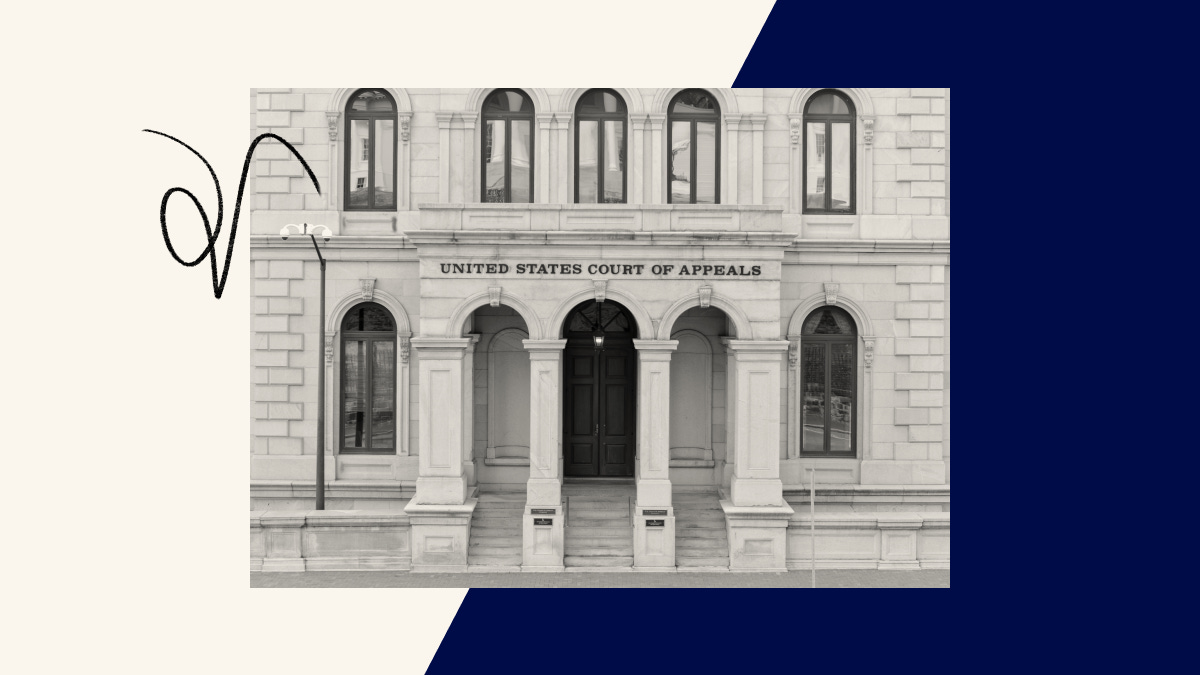A seventh court rejects Trump’s immunity claims
Plus, fusion voting explained
Last Friday, the U.S. Court of Appeals for the D.C. Circuit ruled that Donald Trump does not have absolute presidential immunity from civil liability for the conduct alleged in a case brought by two Capitol Police officers (Protect Democracy is co-counsel). Trump argued, in effect, that because he was president on January 6th, he cannot not be held liable for his actions. The court disagreed and drew a line between a president’s private and official acts. You can read about it in the New York Times, Washington Post, or CNN. Or read the ruling here.
According to Quinta Jurecic & Benjamin Wittes in Lawfare, this ruling is perhaps even more important than a ruling later on Friday by District Court Judge Tanya S. Chutkanin in Trump’s criminal case, denying him immunity from prosecution:
The district court opinion is no surprise… The D.C. Circuit opinion, by contrast, is a very big deal, and in its unanimity across political ideology—given that the panel included two judges appointed by Democratic presidents, along with a Trump appointee—it is a bit of surprise.
Why this matters
Our founders didn’t overthrow a tyrant king just to allow another to take his place. Immunity paired with an expansive view of what constitutes “presidential” conduct is the crux of Trump’s defense, in case after case. As Justin Florence and Genevieve Nadeau write in The Bulwark, seven courts have now rejected Trump’s claims that the Oval Office shielded him from legal responsibility for his personal actions:
All told, our judiciary has agreed time and again that Trump is not above the law. In each and every one of these decisions, from more than fifteen different judges, in no fewer than seven different courts, in opinions joined by judges appointed by Democrats, by Republicans, and even by Trump himself, his arguments for immunity have been rejected. In civil cases and criminal cases; cases about criminal investigation and cases about congressional oversight; cases based on conduct before he was president and while he was president; cases while he was in office and after he left; cases in trial courts and in appellate courts; cases in state court and cases in federal court. Over and over and over again.
Seven courts. All crystal clear: the president is not above the law.
What comes next
But this is still not the end of the story. As Justin and Genevieve warn:
And yet, Trump may still get his way. Not because our legal system puts him—or anyone—above the law, but because his strategy is delay: He is seeking to stall accountability, so that he can once again obtain the power of the presidency. And then use that office not just to continue to seek immunity in court but also to try to order the dismissal of cases against him, pardon himself and potential witnesses to his misdeeds, and otherwise use the machinery of government to create for himself the untouchability the judiciary has refused to bestow.
Whether Trump’s strategy succeeds will be the ultimate word on whether we are a nation of laws and not of kings.
If he succeeds, the consequences could be dire—both for our democracy and for the people defending it. As James Blassingame, one of our plaintiffs reflected on Friday, “more than two years later, it is unnerving to hear the same fabrications and dangerous rhetoric that put my life as well as the lives of my fellow officers in danger on January 6.”
The stakes are high.
Read the full story >>
Get smart on reforms: fusion voting, explained
Fusion voting was once universal throughout the U.S. and still features prominently in several states. Simply: more than one political party nominates the same candidate on the ballot, allowing voters to support a viable candidate without having to support one of the two major parties.
Typically, this means a minor party and major party “fuse” together to cross-nominate and support the same candidate. A candidate’s vote total is the sum of the votes they received on each party’s line.
The healthy-politics benefits of fusion voting could be significant: giving voters more choices, a more constructive role for minor parties, and more fluid politics. Above all, it would make it easier to build the cross-ideological coalitions in defense of democracy and the rule of law that we so badly need.
Read more about fusion voting >>




